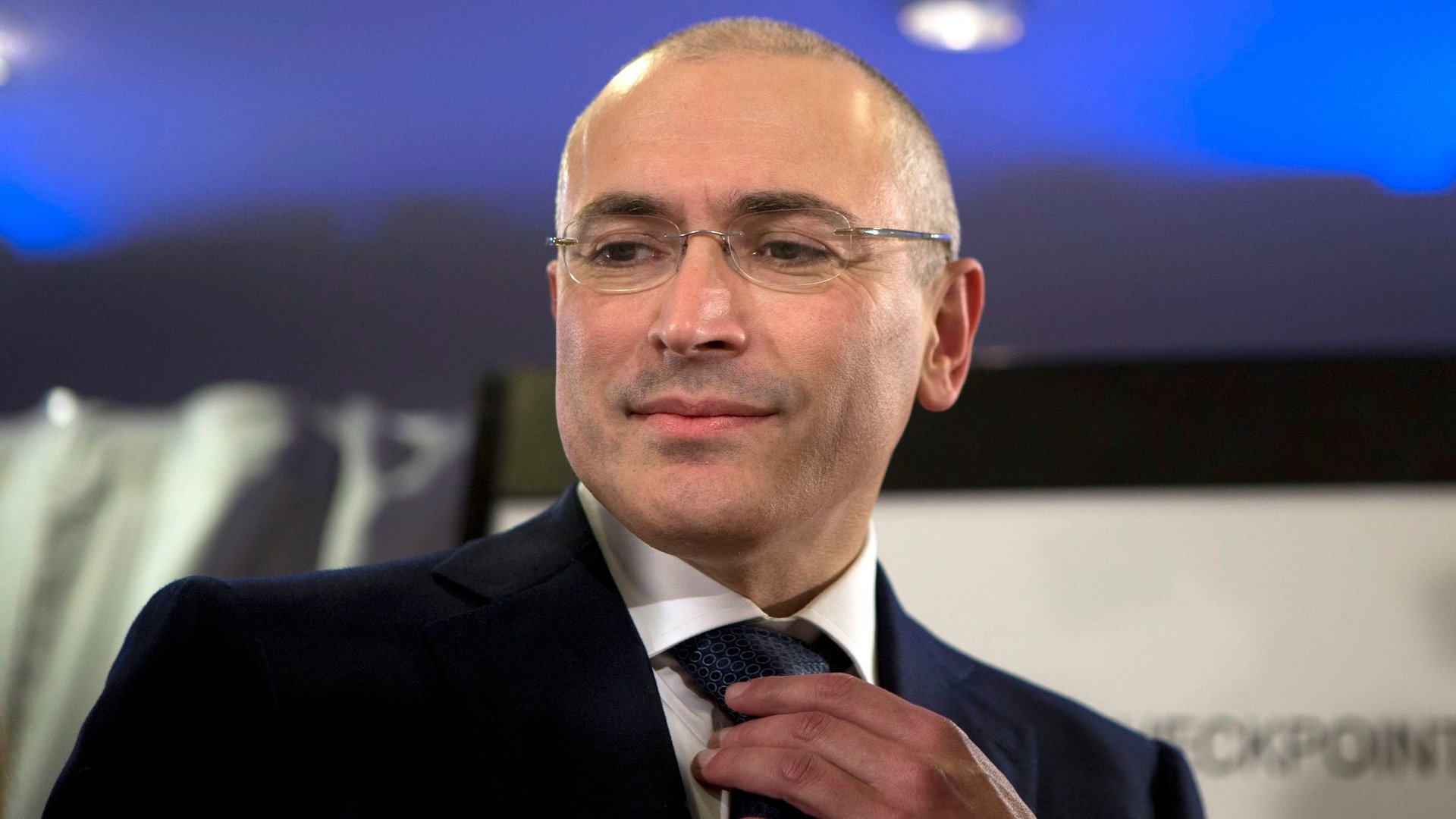How Russia’s once-richest man hid his last $170 million from Vladimir Putin
This story has been updated.


This story has been updated.
Mikhail Khodorkovsky, the Russian ex-oligarch who was just freed after 10 years in jail, told journalists at a press conference in Berlin two days ago that he didn’t know how much money he had left. Leonid Bershidsky, a columnist for the Russian edition of Forbes, thinks he has an idea.
Khodorkovsky grew rich in Russia’s freewheeling 1990s by acquiring state oil assets in a series of dubious auctions, which he built up into Russia’s biggest oil company, Yukos. At one point, he was ranked 15th on the Forbes billionaires list, with a personal worth of $15 billion.
In 2003, Khodorkovsky and one of his business partners, Platon Lebedev, were arrested on charges of fraud and tax evasion. The Russian government accused Yukos, then worth some $30 billion, of owing about $27.5 billion in taxes. It subsequently seized most of Yukos’s assets and distributed them to other firms.
But Khodorkovsky and his partners had controlled Yukos and its sister companies through a Gibraltar-based holding company, Group Menatep, which still exists under the name GML. And even as Khodorkovsky and Lebedev sat in jail, one of their partners continued to run GML. Leonid Nevzlin had left Russia for Israel before things got too hot. Under his management, GML fought a number of lawsuits outside Russia against companies that had taken over Yukos’s assets, and sometimes won.
The fruits of these battles, according to Forbes’s Bershidsky, can be found in a financial statement for GML for 2010—the most recent year available—which he obtained via business data firm Dun & Bradstreet. According to it, GML’s assets were then worth $292 million (link in Russian).
Before his arrest, Khodorkovsky was the beneficiary of 59.5% of Menatep’s shares. Assuming that’s still the case (but see update below), Bershidsky estimates, Khodorkovsky is worth over $170 million. However, owing to complicated ownership structures, the figure could be several tens of millions higher or lower.
Clearly, Khodorkovsky’s wealth is a tiny fraction of what it was, but he won’t be a pauper, either.
Update (Dec. 23, 4:40pm): Luke Eric Peterson of Investment Arbitration Reporter has pointed out to us that officially at least, Khodorkovsky may not control any of GML after all. According to a ruling by an international panel arbitrating a dispute between GML and the Russian government, the company’s ownership structure was changed in 2003 so that its shares are now owned by a number of trusts (pdf, p. 169 and last page). Each of the Yukos partners and their respective families are beneficiaries of one trust or another—except for Khodorkovsky, whose name was taken off his trust in 2005. In theory, then, he has no money—but there may be more to the story.